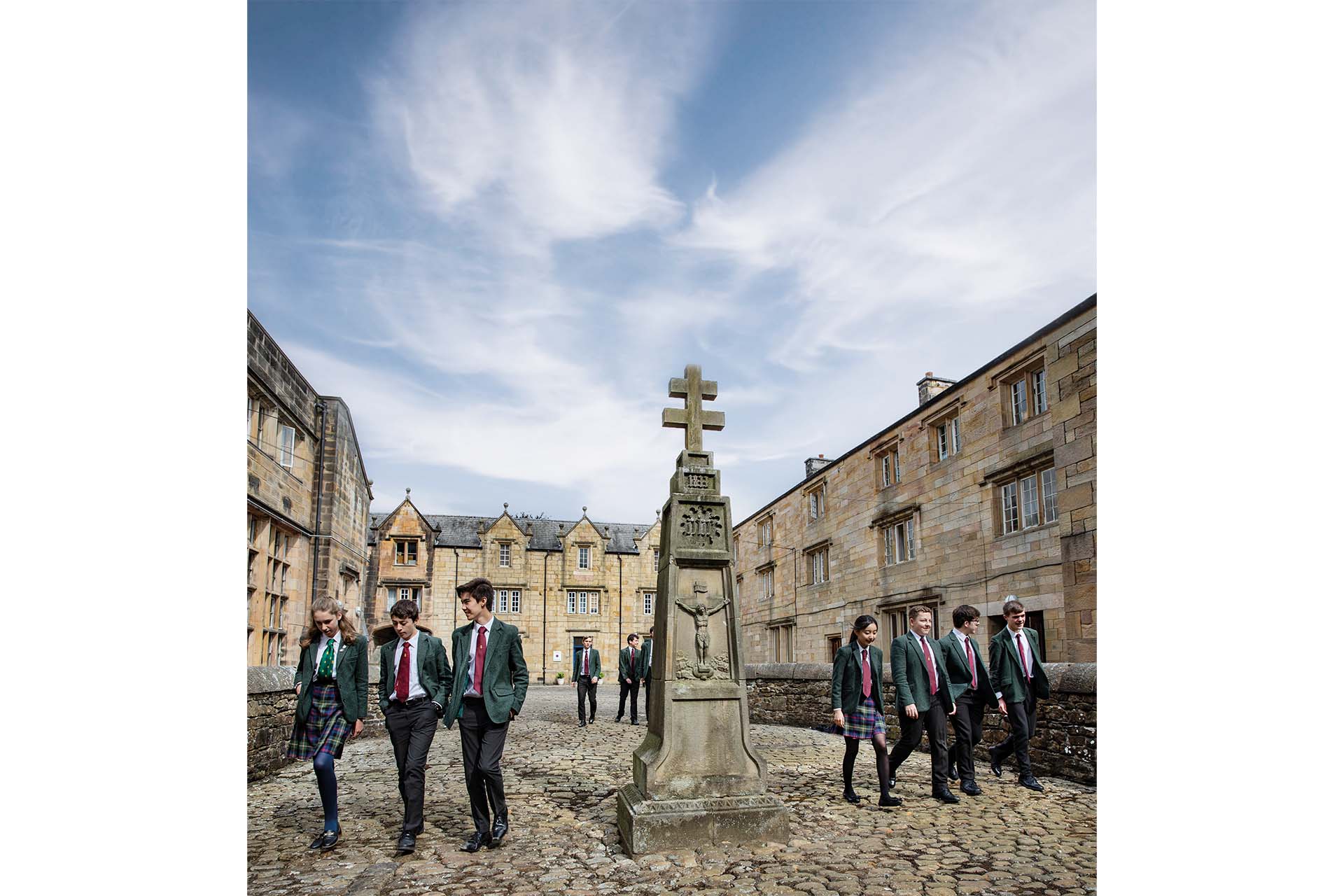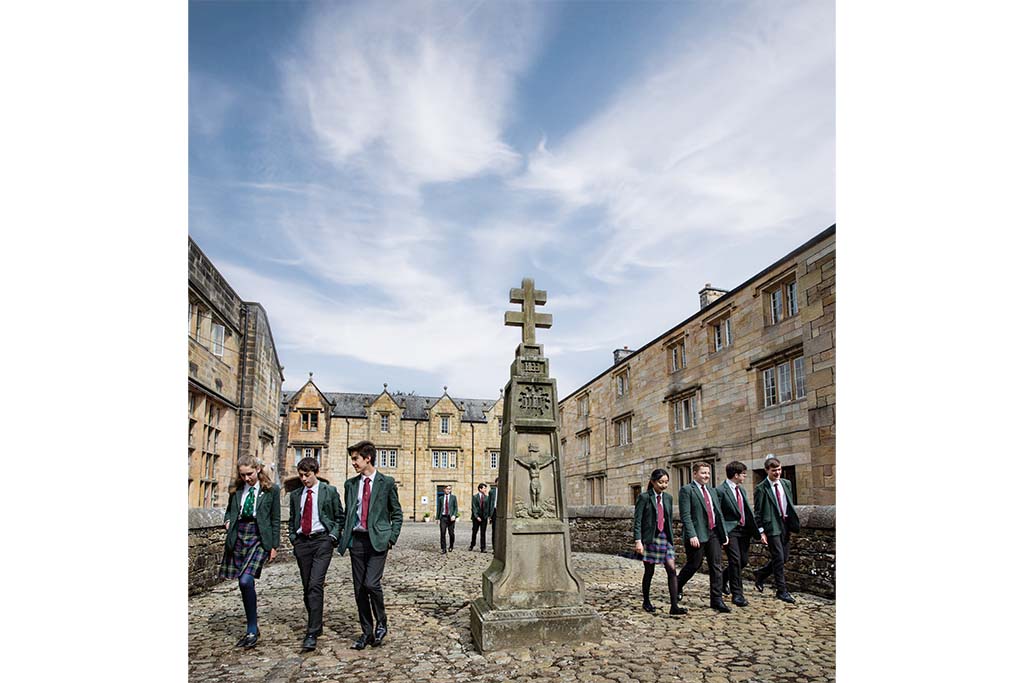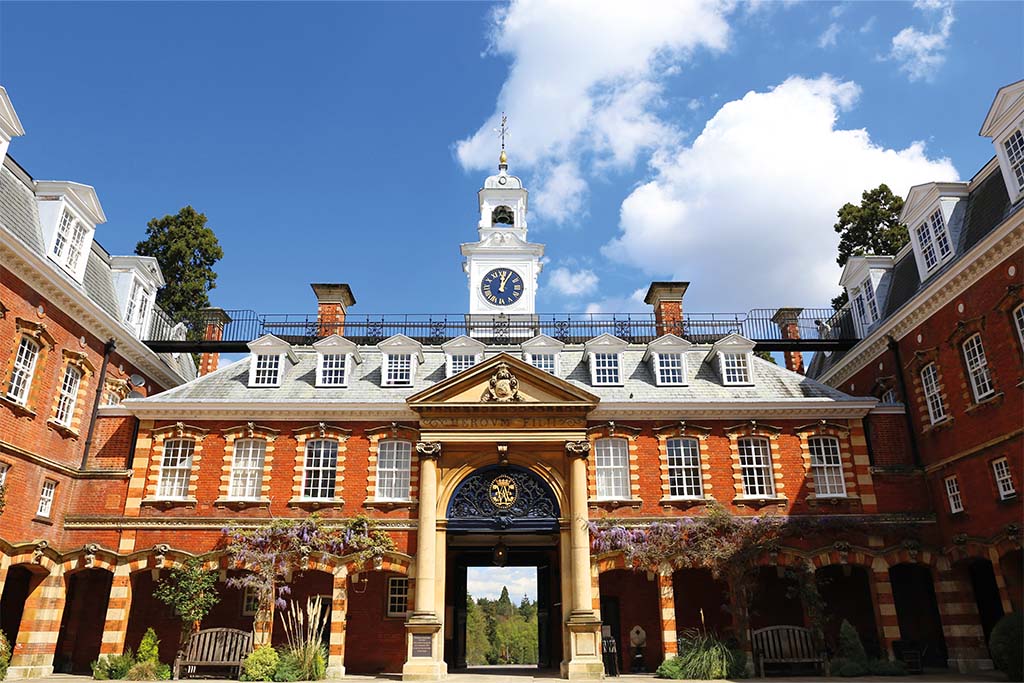Old Schools, New Foundations
By
4 years ago

Radical changes are being made to the way funds are harvested – and spent, says Victoria Lambert

Radical changes are afoot at Stonyhurst, the oldest continuously active Jesuit school in the world. Outside, the school is sited in the timeless landscape of Lancashire’s Ribble Valley, close to the Saxon market town of Clitheroe. But within Stonyhurst’s imposing high walls, attitudes are strictly 21st century.
In particular, the school has completely overhauled its bursary strategy. As a result, the new Stonyhurst Foundation was registered in late 2019 and blessed by the Pope. The goal of the Foundation, the school says, is to remove financial barriers, making a Stonyhurst education available to as many young people as possible. The Stonyhurst Foundation aims to be the largest endowed and ring-fenced independent bursary and financial aid charity of its kind in Catholic education in the UK.
Given its long history and Catholic mission, Stonyhurst has always offered a progressive bursary and fee assistance programme with previously about 37 per cent of pupils in receipt of some level of fee support or bursary assistance, funded largely from school income.
Yet, it is now joining other schools which are not just reassessing how many children can receive additional support, but also on what basis the money to provide those places is found.
This is not just a question of modernising the financial vehicles by which funds are managed, but also a thorough reappraisal of where donations may be found. Schools with global outlooks or outposts are suddenly finding that donations are as likely to be made in dollars and yen as in pounds.
At Marlborough College in Wiltshire, work is underway on a new long-term vision and strategy for the College, says the Foundation Director, Simon Lerwill, with one goal to be the doubling of bursaries on offer.
‘Reaching this goal will require a major fundraising campaign,’ says Lerwill, ‘which we are currently planning. This focus on increased access builds on our original foundation and our commitment to ensuring that talented young people from any background can benefit from the exceptional education we provide, regardless of their ability to pay.’

So, given its nearly 200-year history, why now? ‘Arguably there has never been a more important time to focus on bursaries and access,’ says Lerwill, ‘recent events have powerfully highlighted the social, economic and ethnic inequalities in our society.
‘We know that bursaries can be life-transforming for the recipients – and their families, friends and communities – but we also strongly believe that the whole school will benefit from increasing diversity, in all its forms, because it will be more representative of the society that pupils will go on to live and work in.’
He adds: ‘I think our plans to create a College community that is more inclusive and diverse means Marlborough is now well-positioned to make a difference and we hope we can become a beacon for change within the independent sector.’
Lerwill also points out that his school is not alone. ‘The good news is that many independent schools are focusing on accessibility now and, in terms of philanthropy, more money is being raised for bursaries than ever before. There has been an important shift from capital fundraising (for buildings) to bursary fundraising in recent years.’
Wellington College’s original foundation has always had a special purpose – educating, free of charge, the children of deceased servicemen or servicewomen of Her Majesty’s Armed Forces irrespective of rank, plus the orphan children of persons who, in the sole opinion of Governors, died in acts of selfless bravery.
Independent of that, explains Tim Head, Deputy Director of Admissions, the Berkshire college is looking to grow its modern Prince Albert Foundation. ‘These bursaries, of 110 per cent fee remission, also seek to aid the family with transition and to support the student when they finally leave the College.
‘At the moment we have 15 Prince Albert Foundationers in the school – our aim is to get to 40 over the next three years. This foundation is independently funded and is the focus of targeted fundraising.’

Not all new foundations are dealing with bursaries direct but are still concerned with improving access; one of the newest comes from Dukes Education, a UK family of nurseries, schools, and colleges, based mainly in the London area.
The Dukes Foundation was created to open up co-curricular enrichment programmes to pupils from state schools across the UK, with a particular focus on London and the South-East. The Foundation supports schools within the Dukes family to build partnerships with these local maintained schools, sharing resources and best practice as well as pathways for potential bursary applicants.
The manager Anna Thorne explains: ‘The Foundation aims to improve access to enrichment opportunities for students of all backgrounds as well as financially supporting the brilliant work of charities already in this area, such as Place2Be and The Access Project.’
At Cheam School, Hampshire, traditional bursaries have always been provided, but three years ago, the Governors decided to set up a new Cheam Foundation, a dedicated fundraising vehicle to extend bursary provision to more children where funds are kept separate from school finances.
‘The Foundation is fully committed to raising funds for life-changing bursaries,’ says its dedicated Development Director, Victoria Edgington.
‘Following a lengthy assessment process in 2019, The Cheam Foundation became an accredited partner of The Royal National Children’s SpringBoard Foundation,’ Edgington explains. ‘We are delighted to now have several fully funded bursary recipients within the school, and it is wonderful to watch them develop their talents within our community.’
‘Setting up a new charity is a huge amount of work but it is what the donors wanted and the clear feedback we received at the time was that this structure is what gives donors confidence’
Stephen Withnell, deputy head of Stonyhurst College
Like all schools, Cheam has support from the parent body and wider old-pupil community. ‘We are grateful for all the financial support we have received,’ says Edgington, ‘and have had overwhelming support for the concept of bursary provision from the whole Cheam community. Bursary recipients have been welcomed by our current parents who have gone out of their way to help the children settle in.’
At Stonyhurst, Stephen Withnell is deputy head (External) as well as Director of the Foundation. He is a former pupil but he has also been a Governor and now his own two children attend the school in turn.
Prior to returning to his alma mater, Withnell worked at Goldman Sachs as a Managing Director and was recently appointed to the University of Durham as a Professor of Economics and Finance. So perhaps he understands more than most how things work outside of the schools’ sector and how to reach those donors who can really make a difference.
The Stonyhurst Foundation could even be a model for other schools as a result. ‘When we started planning the Foundation,’ Withnell says, ‘We started with a blank sheet of paper. What we didn’t want was to set up something cosy. We knew that wouldn’t attract seven-figure donors, the sort of donors who have the ability to really drive social mobility by broadening access to life-changing education – and that’s what bursaries are all about. We wanted to measure ourselves against best practice in governance and management across the whole UK charities sector, not just education.’

As a result, the Stonyhurst Foundation is its own independent charity, with its own board of trustees and its own independent constitution, accountants, auditors and solicitors. ‘Setting up a new charity is a huge amount of work but it is what donors wanted and the clear feedback we received at the time was that this structure is what gives donors confidence.’
He adds: ‘The fundraising and grants systems are utterly transparent. Nothing is paid out from any of the Foundation’s designated funds except for bursaries.’ Already, donors have responded to this structure by proffering more than £6m in support. The 25 current pupils funded through the Foundation will be increased to 35 this year. The Foundation does not choose bursary recipients, the College must nominate pupils and confirm that their applications have met all of the standards for entry to the school in order for the Foundation to grant funds.
One of the things that Stephen Withnell is keen on is that schools work together and replicate best practice across the sector – all widening access work is for public benefit and as such schools should share knowledge and experience. He has already given advice to other schools setting up new foundations.
Some points about bursaries don’t change. Marlborough College was founded with the aim of educating the sons (and orphans) of the clergy, who could not afford an independent education and still offers places on that basis.
Now however, says Simon Lerwill, daughters of clergy are included, while governors include clergy too. ‘For Marlborough not only do we have our historic foundation,’ he points out, ‘but we also have a history of being a progressive educational institution. The College was an early proponent of full co-education (girls were admitted for the first time in 1968) and it was at the forefront of introducing the modern science method to schools. So in that sense we have a history of making bold decisions like this and making change happen.’
Looking to the future, the Cheam Foundation will also continue to fundraise in order to extend fully funded bursary provision to even more children, says Victoria Edgington. ‘The school recognises not only what we can do for these children but also what they bring to the school,’ she says.
Could we reach a point where all places at a school are funded through one of these modern foundations? Stephen Withnell doesn’t see why not. ‘There is no kudos in my opinion to charging fees,’ he says. ‘It is the dream of all Jesuit schools to be fully endowed.’
READ MORE FROM SCHOLARSHIPS AND BURSARIES 2021
Community Spirit | Back to the Future



